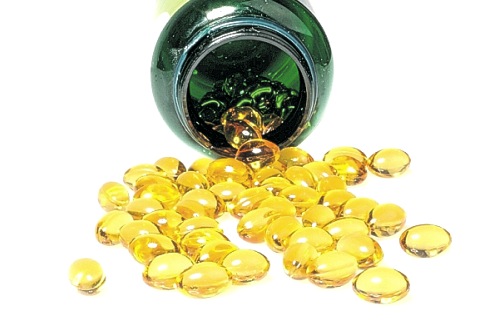AS we go through our very busy days with often little attention to proper nutrition, we sometimes seek to buy over-the-counter vitamins, minerals, teas, and products that contain protein and anabolic steroids in the hope they will improve our health and performance.
We presume erroneously that since these products are to be found on the shelves in supermarkets or pharmacies, they must have been adequately screened and are therefore safe for us to consume.
What we do not know is that two different criteria exist for over-the-counter and pharmaceutical products, with the latter being tested for safety and effectiveness by regulatory authorities, while over-the-counter products are not.
WHAT IS CLAIMED
This difference in approach lies in what is claimed. Pharmaceutical products claim to help specific illnesses or disease states, while over-the-counter products simply claim they are supplements that generally help your health. As a result of the latter, they are not subject to clinical trials for “proof” of safety and effectiveness, or any testing or regulations by governments or health ministries.
They can therefore be imported into any country and sold freely on the market, once the manufacturers or marketers use smart marketing techniques or strategies so you will come to believe their products will actually help you.
However, a recent review of research on the subject and published in the September edition of the journal Hepatology has revealed that one in five cases of chemical-induced liver damage comes from herbal and dietary supplements. When over-used, or used in combination with other supplements, or used for very prolonged periods or in combination with conventional medications, these products may end up being harmful.
THE POTENTIAL FOR HARM
The researchers noted that whilst several pharmaceutical products may also cause liver damage as a side effect, the difference is that these products can only be bought with a prescription, and so their use is under the direct supervision of a trained and licensed medical doctor. A further difference is that the pharmaceutical products have been proven by clinical trials to provide some health benefit, and so any risk of liver damage is greatly outweighed by the large benefit to the treatment of illness and disease that these pharmaceutical drugs provide.
No such proven benefit has occurred for the over-the-counter products, while they simultaneously carry the potential risk of harm.
One problem for people who use products that damage the liver is that such damage can sometimes take months or years to develop, and people do not notice any symptoms until the damage is well advanced. As liver damage progresses, people may notice fatigue (lack of energy), nausea (‘bad feeling’ in the stomach), itching, and then go on to seeing yellowing of the skin (difficult to notice in people of African descent), accumulation of fluid in the tissues (ankles, feet, etc.), spontaneous bleeding, and mental confusion.
THE RESEARCH DATA
The researchers examined data from published studies, data presented at the 2015 conference of the US National Institutes of Health, and 130 cases of reported supplement-related injuries in a US Registry of drug-induced liver injuries.
Steroids present in products accounted for one-third of all liver damage cases. The remaining cases came from products that had multiple ingredients where it was difficult to ascertain which ingredient produced the damage.
Non-steroidal supplements included green tea, mixtures labelled as ‘Chinese herbs’, ‘Korean herbs’, or ‘Ayurvedic medications’, as well as vitamins and dietary supplements. Many cases were also tied to products marketed under various company labels, including six from ‘SlimQuik’, four apiece from ‘Herbalife’ and ‘Hydroxycut’, and two apiece from ‘Move Free’ and ‘Airborne.’ One limitation to the evaluation was that product labels may not provide a complete list of ingredients, making it difficult to determine patterns in the products that were linked to liver damage.
THE BEST ADVICE
In addition, complications from these products may often go undetected as people may not tell their doctors they are using them and so the doctor would not know to monitor these people for possible side effects. We should note however, that not all supplements are bad, and people may need specific supplements to address certain nutritional issues linked to diseases or caused by deficiencies or medications. These are often determined by trained health professionals.
In light of all this, the public should be very wary of products that make extreme claims and too-good-to-be-true promises, and understand that they themselves do not have the ability to detect any unsafe ingredients in these products.
Currently, there is no miracle in a bottle or tablet that will detoxify your system, build muscle (without exercise), cure cancer, or cause rapid, long-lasting weight loss without you exercising regularly in a sustained way. At best, you would be wasting your money, and at worst such a product may damage you in a permanent way — severe enough sometimes to even cause death.
Derrick Aarons MD, PhD is a consultant bioethicist/family physician, a specialist in ethical issues in medicine, the life sciences and research, and is the Ethicist at the Caribbean Public Health Agency – CARPHA. (The views expressed here are not written on behalf of CARPHA)










